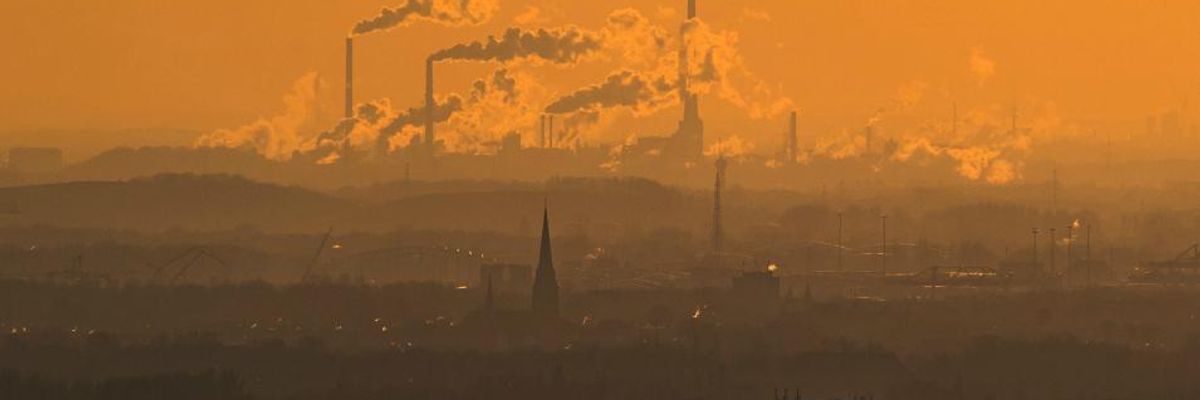A comprehensive United Nations report released on Wednesday found that while global human health is under dire threat from the climate crisis and industrial pollution, there is still a window for bold and urgent action if world leaders would but seize it.
"We are at a crossroads. Do we continue on our current path, which will lead to a bleak future for humankind, or do we pivot to a more sustainable development pathway? That is the choice our political leaders must make, now."
--Joyce Msuya, U.N. Environment
The United Nations Environment Programme's Sixth Global Environmental Outlook (GEO-6), described as the most rigorous climate assessment released by the international body in the last five years, warned that continued inaction from policy-makers could result in millions of premature deaths from air pollution and other factors throughout Asia, the Middle East, and Africa by mid-century.
The report also highlighted rapidly increasing rates of species extinction.
"At present," the authors note, "42 percent of terrestrial invertebrates, 34 percent of freshwater invertebrates, and 25 percent of marine invertebrates are considered at risk of extinction."
Without "urgent action at an unprecedented scale," the report said, the "ecological foundations of society" are at risk of collapse.
Joyeeta Gupta and Paul Ekins, co-chairs of the GEO-6 process, said in a statement that all the technology, policy ideas, and money needed to bring about ambitious global changes already exist.
"What is currently lacking is the political will to implement policies and technologies at a sufficient speed and scale," they said.
To avert the worst consequences of the climate crisis and ensure a livable future for all, the report calls on policy-makers to focus on transforming the world's food, energy, and waste systems by:
- Aggressively moving to slash carbon emissions and investing in green energy;
- Transitioning to more sustainable forms of food production and less meat-intensive diets; and
- Creating a "circular economy" that "uses waste as a resource."
"These transformations will not be easy, but they will offer enormous opportunities for those who are ready to seize them," the report states. "What's at stake is life, and society, as the majority of us know it and enjoy it today. We have no time to lose."
"The science is clear. The health and prosperity of humanity is directly tied with the state of our environment," Joyce Msuya, acting executive director of U.N. Environment, said in a statement.
"We are at a crossroads," Msuya continued. "Do we continue on our current path, which will lead to a bleak future for humankind, or do we pivot to a more sustainable development pathway? That is the choice our political leaders must make, now."
The U.N.'s Global Environmental Outlook comes as bold policy solutions like the Green New Deal are gaining traction in the United States, with one recent survey showing that over 80 percent of Americans support the idea.
The report was released just two days before hundreds of thousands of students in over 90 countries are set to strike to demand that political leaders immediately take action to secure a habitable planet for future generations.
"I think that change is on the horizon and the people will stand up for their future," 16-year-old Swedish climate activist Greta Thunberg told the Guardian.

